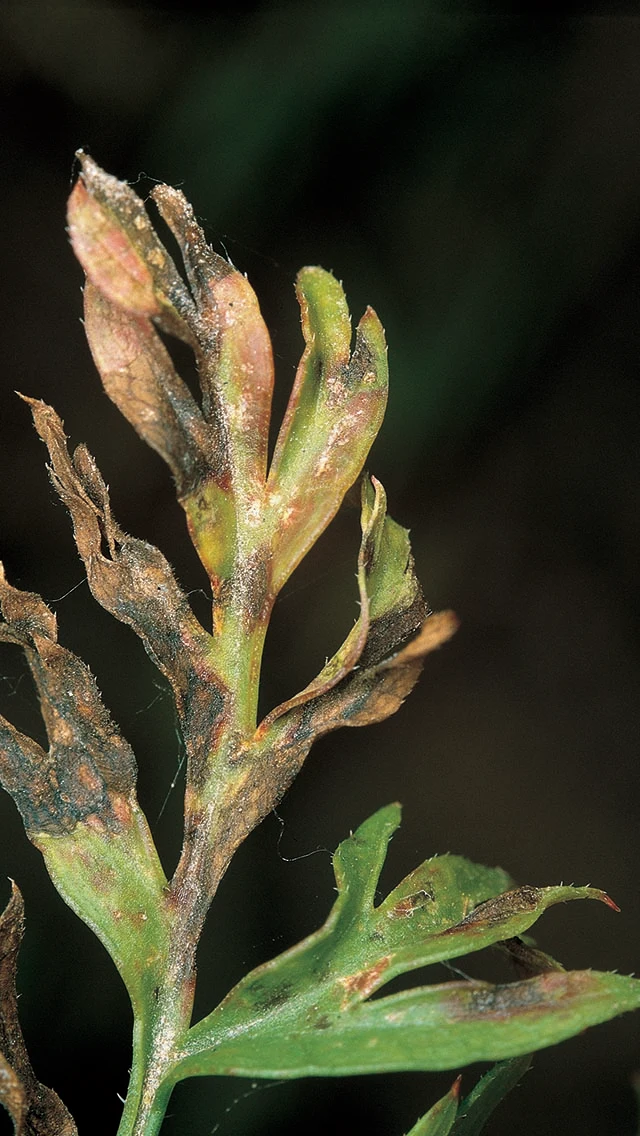
Alternaria Leaf Blight
Alternaria dauci
Pathogen
Fungus
Hosts
Carrots
Symptoms
Initially visible as dark brown lesions on the individual leaflets and petioles and these lesions can be surrounded by a yellow halo. The first infections are often found on the leaflet edges of older carrot leaves. Under favourable conditions these can coalesce to shrivel and blacken whole leaves or aerial parts of plants to give a `blighted` appearance (as the name suggests).
Like Cercospora, this fungus does not invade the carrot roots.
Development
Infections arise on older leaves. Can be carried on the seed, wind borne or spread by rainsplash. Known to survive on crop debris for periods of up to 2 years. Can also survive on host plants such as wild carrot as well as being able to survive in the soil for periods of up to a year.
Favourable factors
Prolonged heavy rainfall and cool temperatures.
Importance
Does not invade plant roots. Weakened foliage can impair healthy root development as well as causing mechanical harvesting difficulties especially where disease pressure is severe.
Can also be found on parsley.
Control
Clean seed
Disease tolerant varieties
Rotation
Removal of crop debris
Protect with fungicides at the first sign of disease establishment


